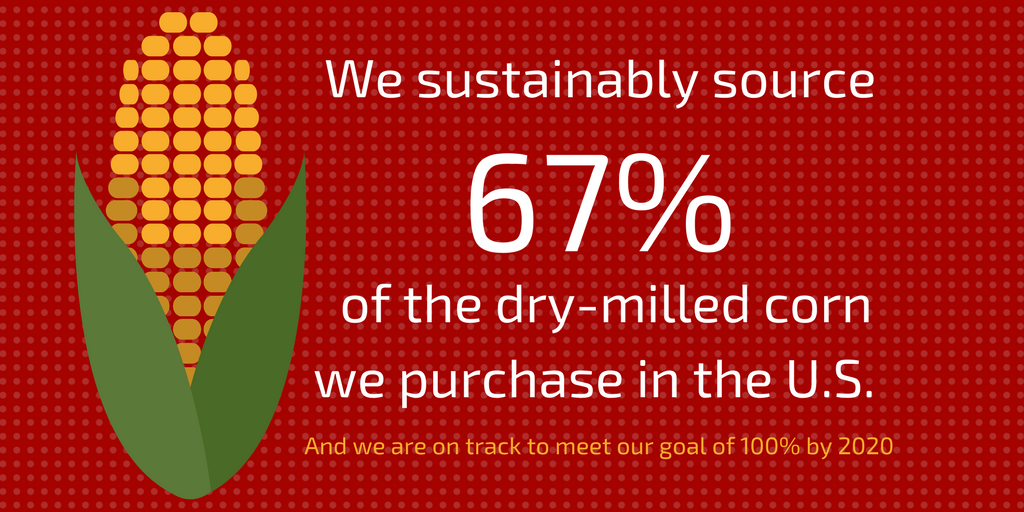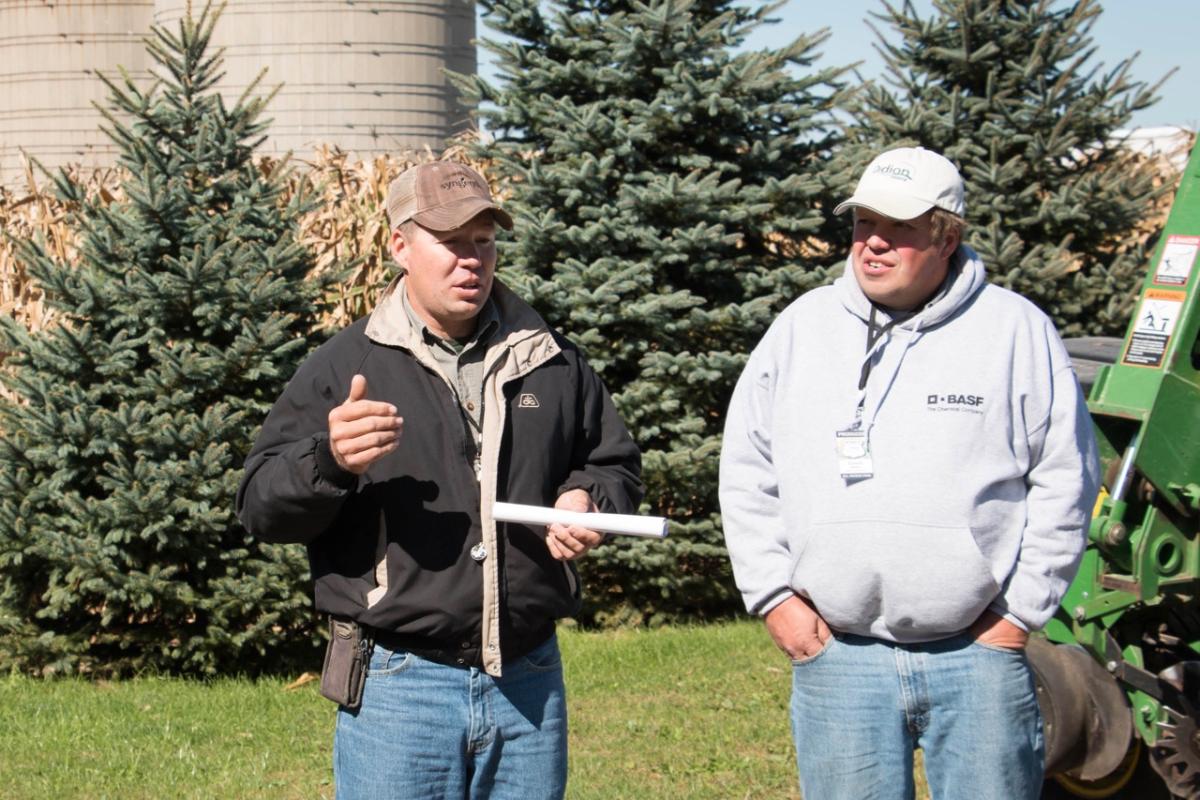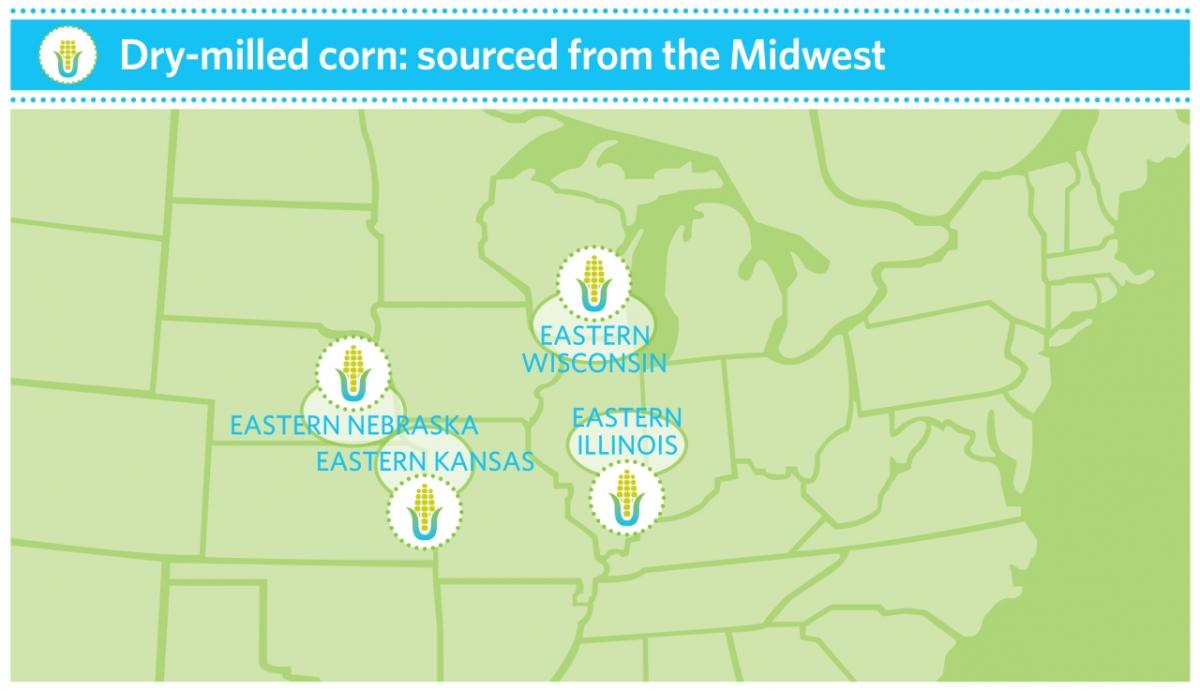Kernels of Transparency: Sustainably Sourcing Corn
By John Wiebold
Kernels of transparency: Sustainably sourcing corn
What do Kix, Cocoa Puffs and Corn Chex cereals all have in common with Bugles snacks?
They share a common essential ingredient: dry-milled corn.
We source some of the highest quality corn from the Midwest in the U.S., where we work with our suppliers, farmers and other partners to try and ensure the corn used in our products is grown using sustainable farming practices.
We know consumers are increasingly interested in where their food comes from and how it is grown. We share consumers’ desire for transparency about what goes into our products. For that reason, we made a commitment in 2013 to sustainably source our top ten priority ingredients by 2020.
Today, we sustainably source 67 percent of the dry-milled corn we purchase in the U.S. and are on track to meet our goal of 100 percent by 2020.
In addition to providing greater transparency, we are also driven by our company’s pursuit to treat the world with care. Working with our suppliers and the farmers who grow corn and other priority ingredients, we are focused on reducing the environmental impact of agriculture.
For corn, that means changing the way crops are grown and harvested in order to reduce greenhouse gas (GHG) emissions and protect soil and water.
Use of more environmentally friendly farming practices – such as no till, crop rotation and cover crops – helps improve soil health while lowering GHG emissions that contribute to climate change. Those practices also improve water quality by lessening the amount of fertilizer and other nutrients that can end up in the water supply.
To determine the most efficient use of resources, farmers capture and compare data with software tools. This data enables farmers to measure the impact of sustainable practices and identify improvement opportunities so they can grow more with less fertilizer, water, energy and soil erosion.
“[Software tools] have been very valuable for us. It’s like having another helpful tool in your tool box. The data collected helps us get a look at the bigger picture of our sustainability efficiency and make better decisions on inputs like fertilizer and seed.” — Kevin Beske, Wisconsin farmer
Kevin and David Beske are third-generation farmers who grow corn, soybeans, wheat, peas and lima beans on their 1,000-acre farm. Their corn eventually makes its way into General Mills cereals by way of our supplier, Didion Milling.
In Wisconsin, we have been working with our supplier to connect with farmers, including the Beske brothers to measure sustainability and continuous improvement practices.
In 2017, 15 farmers across the state gathered sustainability data on more than 7,300 acres of corn. So far, the results have been promising.
In 2016, 46 percent of the participating farmers used conservation tillage practices on their corn fields, reducing soil erosion by 87 percent compared to other farms in the region.
These farmers also implemented a combination of conservation practices for 96 percent of the corn acres to improve water quality, including planting field borders, grass waterways and other conservation cover techniques to keep soil on the fields and prevent nutrient run-off.
All this data makes it possible for farmers to see what works, refine their approach and continue to improve sustainable practices on their acreage. We are optimistic this cycle will have a positive impact on the environment.
We continue to expand our efforts to partner with other suppliers and attract more farmers into the program as we work toward our goal of sustainably sourcing all the U.S. dry-milled corn in our products.
Improving sustainability is a group effort. We can’t do it alone. By partnering with our suppliers and the farmers in their networks, together we can have a farther-reaching positive impact on our planet’s land, water and climate.
Click here to read other posts in our sustainable sourcing series.
Have an idea for a story you’d like to see on “A Taste of General Mills”? Email us at contact.blog@genmills.com.
Subscribe to “A Taste of General Mills” by email – here – and we’ll notify you about our latest posts.




